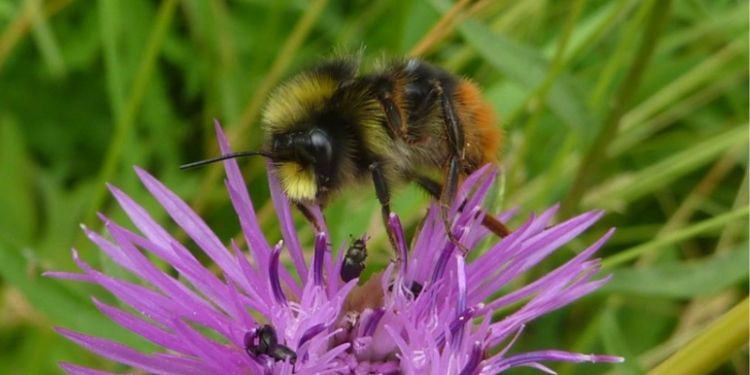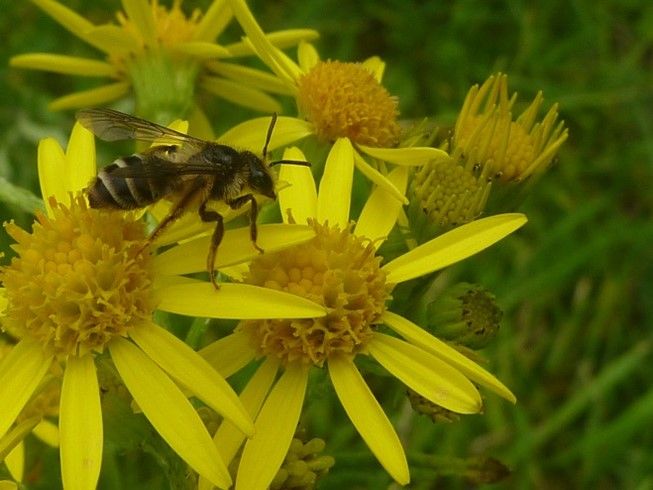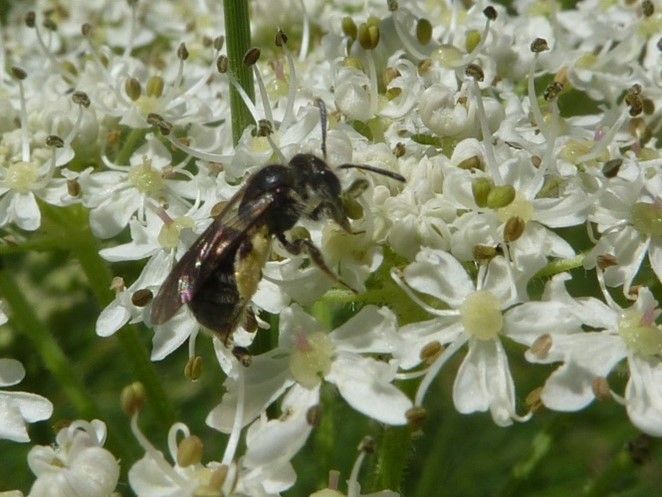Understanding the declines in insect pollinators

The challenge
Many important agricultural crops, such as oilseed rape, berries, apples, pears and plums, are pollinated by insects. Insect pollinators are also vital for maintaining wildflower populations. The value of all crops pollinated by insects in the UK is in the region of £600m per year (Office National Statistics, 2010).
While domesticated honeybees provide a substantial share of this pollination, recent evidence suggests that the majority of crop and wildflower pollination is performed by wild pollinators, mostly bees and hoverflies. However, there has been concern in recent years about the apparent declines in pollinator species and the effects this has on crop and food production and on wildflower pollination.
The solution
Professor Bill Kunin, with colleague Professor J.C. Biesmeijer and collaborators at the Universities of Reading and Bristol, and the Centre for Ecology and Hydrology, has used mathematical techniques to compare diverse historical data sets on pollinator abundance over the last eight decades. The results of this work give a clear picture of the changes in pollinator abundance.
Professor Kunin has also estimated changes in local and regional pollinator species richness, and has used these combined sources of information to inform policy makers and farmers about effective ways to manage farmland to preserve the diversity and numbers of insect pollinators. In addition, Professors Kunin and Biesmeijer’s collaborative work has provided data for the International Union of Nature Conservation European Red list for bees, and enables identification of wild bee species that are at risk of extinction.
The impact
Research at Leeds on population changes of bees and other insect pollinators has guided National Pollinator Strategies for the UK and internationally, leading to changes in agri-environmental payments and management schemes, the planting of floral resources on 1000s of ha of private and public lands, and the creation of national and regional pollinator monitoring programmes. These actions have been driven by increased public and policymaker knowledge and concern about declines in wild pollinator abundance and biodiversity.
Leeds-based research has played a pivotal role in informing public and Parliamentary discussions, contributing to policy development, and has served as the model for one component of the national monitoring programme.
Professor Kunin’s work has also attracted international interest. For example, it has been used to inform aspects of the United States Pollinator Health Task Force National Strategy to promote the health of honey bees and other pollinators.
Images credit: Prof. Bill Kunin



